- Home
- Mary Anne Kelly
Jenny Rose Page 6
Jenny Rose Read online
Page 6
“You must be exhausted,” she told me. “Just look at you, two flights and a bus journey. We thought you’d have rented a car. Most people do. Well. We’ll have you set to rights in no time at all. I don’t know who will be free to chauffeur you about. It won’t be the way you imagine, I’m sure. Come on.” She ushered me into the bathroom before I could object and shut the door on me. I sat down obligingly on the toilet. She chattered on, through the door. “Don’t mind Seamus Wooly,” she said. “He parrots everyone. No one pays him a never-you-do mind. It’s all out of context, you see. He’ll have you down in no time at all, you watch. There’s some won’t go near him. They say he’s a changeling. We don’t hold with such nonsense, a course. Dad’s gone and given him a job. We used to be able to just chuck him out when he was in our hair. Now we can’t even do that. Because, of course, Dad means well but by the end of the week, he’s too chintzy to let go of any money so we wind up feeling indebted.” She heard the chain pull and opened the door with a fresh towel then shut it again behind her before I realized where it had come from. “Seamus Wooly is a special boy,” she went on. “Nobody says retarded anymore. And it’s not like he can’t do anything. There’s a lot more he could be doing around here, if you’d like to know the truth. He’s lazy. Your uncle Ned has him climb up the trees to refill the bird houses, at least. Things like that. On Sunday they’ve now got him carrying the chalice up to the altar. So you’re not to feel sorry for him. He’s got the harbor … cove, really. Pretty as a picture but no light fun in a storm. If you’re ever looking for Seamus, that’s where you’ll likely find him, trotting down the beach in his black Wellies. Never too far behind Jenny Rose. Done?”
I picked my head up, dripping, from the little porcelain sink and looked into her eyes. Arms crossed, waiting, she regarded me from her vantage point at the threshold. Her expression told me she wasn’t impressed. I’d been dismissed already, I could tell. I wasn’t young, for one thing, automatically eliminating me from the dangerous opponent category. She was just waiting to be done with me so she could get on with more pressing stuff.
Bernadette took me through to the room with the corpse. It wasn’t what I’d expected. The room smelled of paint. The whole house in fact had been freshly painted. There weren’t zillions of flowers, the way we do it at home, each death a tribute from a run of all the Queens florists. No, there was one vase of roses on the piecrust table and a variety of holy pictures to choose from. I knelt on the crewel-embroidered kneeler by the coffin and said my three Hail Marys. A silver-framed oval of Dierdre smiled at me. She looked like a glossy version of my mom.
When I finished, Bernadette was standing there, gazing at the coffin. She’d been brushing her hair while my head was bowed. I could tell from the electrified and shivering aura around her head.
“Come along.” She ushered me through a door where you had to duck, up a short stairway and there I was in a nun’s room: bed, table, lamp, cross on the wall, window, little shrank to put your duds in, moor out the window. My bag was upside-down on the bed. The wood floor shone like a spoonful of honey. “Great,” I said.
Bernadette patted her shiny cap of highlighted-all-the-way-in-Dublin hair. It was cut in a line just above her jutted out-for-battle chin. She knew she was an impressive young lady. Tiny little hands and feet. Jewelry. Manicure. If she wasn’t attractive, it was hard to tell, she was that put-together. Pity, though, she hadn’t done something about the shrill in her voice.
“You see the way it is here in the country,” she went on with a stab at humility. “You must think us provincial. Coming from New York, as you do.”
I laughed. “I’m afraid the New York you’re talking about is as far away from me these days as it is to you.”
From her scornful expression I could tell she agreed. Anyone, she thought, who would wear lace-up moccasins …
I sat on the bed and wriggled them off. My feet, at least, had arrived nice and comfy and cozy. Then she said, “Mom was going to put you in the loft but—”
“Oh, I would have loved to sleep in a loft—”
“Jenny Rose said you would have. But, no, our mom said, you’d go back to America telling we’d put you in the hay loft. As if you wouldn’t have been able to see the charm. You won’t mind sleeping here, you said?”
I pulled the soft curtain off to the side and leaned down. You could look at the stone wall leading to the road. “It’ll be great.”
“Because Aunt Dierdre’s just down the stairs. She’ll be right below you, if that’s any comfort. You can be praying for her eternal soul.”
I turned around. She had her hand down her blouse and was kneading the flesh on the top of her back. Her eyes were closed. “Perhaps she’ll sift up through the pores of the floor,” she said dreamily, “and dance. Aunt Dierdre loved to dance.”
Now I couldn’t tell if she was kidding or what. My husband’s face came in front of my eyes. Then Carmela’s. Let it pass, a wise voice inside of me said. Let it all pass. “Swell.”
“I’m sorry?”
“That would be fine.”
“Someone will bring you your tea. You can have a good lie in before the neighbors arrive for the wake. Oh, and watch that dog. She’ll bite you as fast as look at you.”
“Thank you.”
She hesitated. “I’m a bit overwhelmed, as you can doubtless imagine. If no one comes with your tea, you’ll be sure to rouse yourself before they all arrive.” She minced over to the window and looked out too. She looked down the road, worried.
I suddenly felt sorry for her. She was my cousin, after all. What did I know of her heart? “It’s good of you to look after me this way.” I gave what I hoped was an appreciative smile.
“Well, you do what you must, don’t you? People think just because they’re relations they can barge in, don’t they?”
Did she mean me? I could hardly believe she would say it.
She put a towel set on the bed. “If that’s all, I’ll be off.”
I had that silly, ingratiating grin still on my face as she turned and left me there.
Chapter Four
When I woke up it was hours later. There were cars outside, lots of them, tightly parked in rows on the grass. The flush of evening was lilac through the lace. Someone whistled. I heard a cow going by, the bells gongling. “Duffy!” someone cried and a line of Gaelic, then part of a laugh.
I sat up, thrilled. I was in Ireland! I washed and dressed in my brown Delhi dress. It seemed subdued and respectful, for me, who is wont to wear Tibetan primary colors. Nor did I put in my chanticleer earrings but settled instead for the brave little hen buttons of coral. Who knew what lay ahead? I took a great breath of Irish inside air and went through the house to the wake.
I was just about to push open the door to the hallway when I heard whispering, and I stopped. I don’t have a devious mind and I’m not one to eavesdrop—no, that’s not at all true. I will eavesdrop anytime given the chance, just don’t let me get caught is my motto and because of the urgency in Aunt Bridey’s voice it seemed more interesting to wait, so I stood there.
Uncle Ned was talking to Aunt Bridey. “She’ll read it in the obituaries,” he said.
“She won’t get the Southern Star in Paris!” Aunt Bridey replied, disgusted, you could tell, by his dimness. “And don’t you even think of notifying her!” she flared.
I heard my name and whirled around. A girl stood there. A college-aged girl. Her face was white and she had flashing hazel eyes. What eyes! More like an Algerian pirate than an Irish country girl. She wore a black scoop-necked sweater with paint on it. Not appropriate for a wake, surely. Her hair was short, like a pixie’s, as though she’d hacked it all off in a hurry, and black. Her mouth was big. Her chin was down. I knew right away.
“Jenny Rose,” I said.
One side of the red mouth turned up.
“I would know you anywhere,” I breathed. “You’re all Carmela.”
We both stood still.
“Except for the eyes.” Eyes with the lights of the night, I thought. And the feet, I thought but didn’t say. Carmela’s huge feet are an event to which no one refers.
Jenny Rose walked toward me. She placed her tiny pointer finger on the tip of my nose. “The same as me,” she said.
I felt the tip of her nose. She had indeed the very same up and down split cartilage under the skin. “Nobody else has that,” I assured her.
“Not your son?”
“Not even him.”
“Huh.”
We looked and looked at each other. She knew I had a son. Had she grown up wondering what we were like? Of course she had. I took her hand and held it in both of mine.
“I never knew about you,” I said, my eyes swimming.
She looked away. Yeah, sure, her expression said. Cool. Like Anthony when he was passed over for something he dearly wanted. Ooh, I knew this kid. I could read her better than I could my own daughter.
“I never could have not looked for you,” I said fiercely.
“Not one for small talk, you,” she mumbled.
“No,” I said.
“Neither am I.” She lit a cigarette, threw back her head and blew the smoke out her nostrils. “I didn’t want to meet you in there.” She nudged in the direction of the voices. “Everyone lookin’. Like on an American ‘let’s get them back together’ show on the telly.”
“You’re American, too,” I reminded her.
“I am not.” She peeked up at me from an elbow up in the air, the hand covering her chin and the crooked thumb between her teeth. She wasn’t generally dirty, I saw right away, just rubbed raw from oil paint and turpentine.
I supposed I was gaping at her. “I want to tell you how sorry I am for your loss,” I finally said.
She looked away. “So you don’t know a thing at all of your aunt Dierdre either, is that it?”
“No. Do you want to know about your mother?”
“My mother is dead.”
“Yes, of course. That was insensitive of me. I’m sorry.”
Suddenly, Jenny Rose took some steps forward, almost past me. She looked desperately about. “What if there’s nothing?” she choked. “After all this, what if you die and there’s nothing?”
“I don’t know,” I said. “I don’t know. But if there’s nothing, we won’t know it.”
“I will.” She banged her breast with her fist. “I will!”
I fell back against the wall and looked around at this place I suddenly was in. Don’t ask me why, I lifted the cigarette pack from her hand and took one. So what that I hadn’t touched a cigarette in eleven years and am known by all as Queen Vigilante against it. I lit the thing up as though I’d never stopped. It’s not true that you get immediately dizzy and feel sick as if it were the first time again. It tasted perfectly, berserkly delicious. You couldn’t blame me, not after all I’d been through in the last twenty-four hours. “I’ll tell you one thing.” I leaned against the wall. “We’ve found each other now. No matter what happens, I’m on your side.”
She shot me a look, suspicious at first and then, what?… grateful.
Encouraged, I took a strand of hair still long enough to take hold of, and anchored it to the back of her ear.
She flinched at my touch. “I’d best go.” She stubbed her cigarette out on a pewter candlestick tray. “They all think I’m odd as I’m not moanin’ and weepin’.” She picked up my arm with two fingers and turned it this way and that. “I thought the paint might still be wet,” she said, solicitous. Making up for the flinch.
“It’s good that I’ve come,” I said, taking hold of her childlike hand. It was cold.
“Maybe.” The lopsided smile. The coat on the door moved and I almost jumped out of my skin when I realized it was Seamus, arms down at his beefy sides. He’d been standing there all along like a dangling, or in his case bungling, participle. An eerie fright swept through me. Those two different color eyes were so disturbing. Jenny Rose, unperturbed, patted him on his big tweed arm and led him through to the bathroom. It wasn’t that he was so tall. He just seemed as broad as he was high. Like a big soggy box. “He’ll stand there and hold it in forever if you don’t point him toward the loo,” she confided. A door opened and the sound of murmuring voices mushroomed out. Jenny Rose winked and I went through on my own.
A large crowd had fitted into that long room, more than you would have thought. They all stopped talking and looked at me as I came in. At least my shoes don’t squeak, I thought as I walked through the path they made for me. They say some dead spirits depart right away and some stay to listen and you can feel them if they’re there. Anyway it was a heavy atmosphere when I walked in and I wouldn’t have put it past the dead woman to have been there. The coffin was downstairs because it was closed. Normally they would have had her opened and she’d be laid out in her room. You had the feeling it was a great disappointment to this lot that the body was not on display. Of course it was handier to have her downstairs where everyone could sit and walk around. Before me lay Aunt Dierdre, dead in the closed wooden coffin. The room reeked of lemon polish. Respectfully I knelt down and prayed for her soul. I could hear crying behind me. I cried a little myself. Only it wasn’t for Dierdre, it was for the death of Johnny’s love for me. And mine for him.
This was only the first night of the wake. So we were in for two more of these. Oh, the rosaries were a’rattling.
It was plainly a sorry affair for Aunt Bridey. I worried she might drop dead herself, the way she sobbed and carried on in her shiny-from-ironing good Thai silk dress. Then again, from the expert way not much later in which she took to overseeing the great ham on the table and monitoring the whiskey, I noticed that life does indeed go on. I noticed there’s not a meal to be skipped in this family, either.
I was seated between Mr. Truelove, the solicitor, and “Auntie” Molly O’Neill, the lady with the bed and breakfast down the road, who turned out to be much younger than I’d thought. The “auntie” threw me, I guess. Willy Murphy sat across from us, his cap politely on his lap. “So, you you found it then,” he said to me.
“Yes, thanks.”
“M-m-more’s the pity it had to be such an unhappy occasion.”
“Yes. Well, what can you do?”
“No-nothing at all. That’s the beauty of it,” he said, his handsome head going back and forth, like an addled Punjabi.
Hmm, I thought, pleased that he was not dumb. I was delighted when he presented me to his mother, the elegant Audrey Whitetree-Murphy. It felt a little like meeting the queen. There was something of the upright kidney bean about her head, and a halo of soft hair in a twist. She wore a dowdy gray suit with sheer stockings and fabulously expensive-looking shoes.
“How do you do?” I said and Willy dashed off and left me there with her. She looked me from head to toe. You’d have thought I was an illegible date on a cut of chicken at the market the way she scanned me over. She held her pale marshmallow leather purse with two fingers as though it were a bag full of little turds. “Isn’t it amusing,” she said to me, “how wakes will make one think of murder.”
“Excuse me?” I said.
“You know”—she cupped her delicate hands as though holding on to a merry-go-round pole—“violence.”
I smiled a stupid, admiring smile.
Liam slipped by and whispered into my hair, “A nice warm Irish woman, that.” He shook hands boldly with her. Oh, she liked my cousin Liam, you could tell. A simpering smile illuminated her narrow face. Then he started in. Liam wanted to know everything about her donkey, Morocco. He wouldn’t let up. How was he and what was he feeling? Mrs. Whitetree-Murphy became glamorous and animated, talking about the donkey. “Is he still longing for a new stall, Mrs. Whitetree-Murphy?” He leaned in and lit her cigarette. “Have you fitted him yet with electric lighting?”
“You know the way he’s always running off!” she said. “I’ve got to make him comfortable, after all.”
“I’ll be ove
r next week to fit him up for a fine bookcase. Sure he’ll be bored. And how about a wee black and white telly?”
“Go on with you.” She shooed him off finally. “Dashed bad form!” she clucked to Molly beside me. But you could tell she was pleased. I thought, I’m going to go have a look at that donkey myself.
Mr. Truelove, the solicitor to my left, was very nice but he droned on. “Now Dierdre’s dead it’s all to come out,” he said to me. I hadn’t a clue what he was talking about but I got the feeling it was privileged. He’d read the will over again last night. “All her money to go to Peg Mulligen, her friend,” he announced, all wistfulness and gloom. A real rod-up-your-rear kind of fellow, my husband would have described him. “Sad about Jenny Rose. By rights it should all go to her. She’ll get nothing now.” He looked, searching, into my eyes. Why wouldn’t it go to her? I thought. His little lips were peevish and wet. “It’s a shame, I say. It’s a fine shame I’ll be bound by law to read it all out loud. Even if it be the truth. It doesn’t seem right to bring it all out. Doesn’t seem decent. A friend should be just that, a friend.”
“Yes, indeed,” I agreed. Luckily, Molly O’Neill put a saucer of tea in my hand as the priest arrived, allowing me to turn away. “Don’t look back,” she warned me. “Not even for a moment.”
“Thank you,” I mouthed without sound.
“As soon as Father Early finishes we’ll be able to get up,” she said. Finally the priest went over to speak to Aunt Bridey and everyone breathed a loud sigh of relief and stretched and started talking amongst themselves. “Have a slosh of port,” Molly offered. She held out a white china flask with a thimble-sized ladylike cup attached on a chain. “Medicinal,” she said.

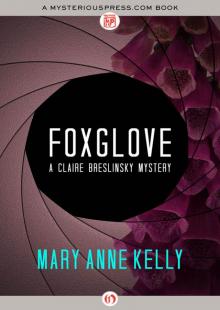 Foxglove
Foxglove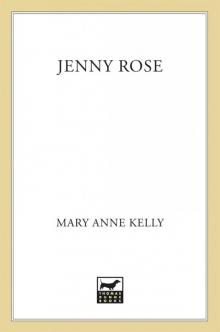 Jenny Rose
Jenny Rose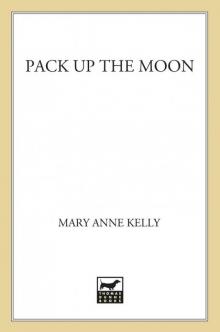 Pack Up the Moon
Pack Up the Moon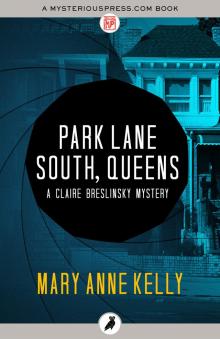 Park Lane South, Queens
Park Lane South, Queens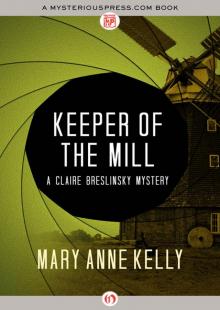 Keeper of the Mill
Keeper of the Mill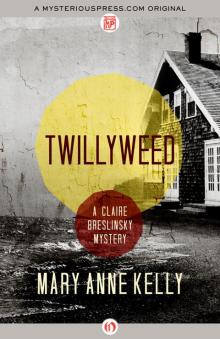 Twillyweed
Twillyweed